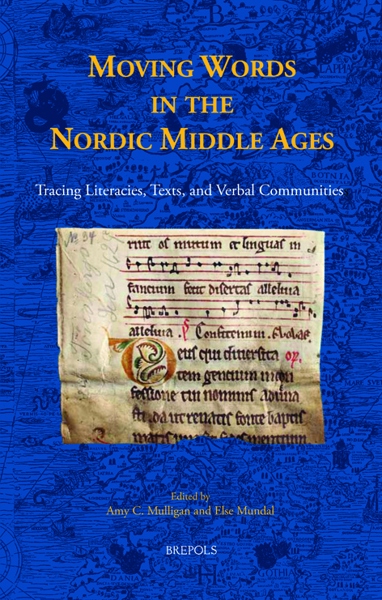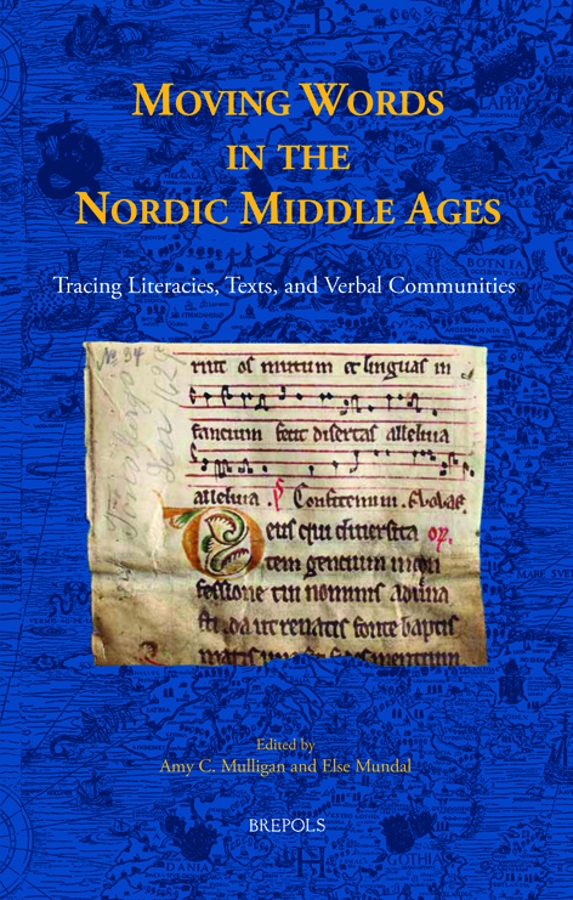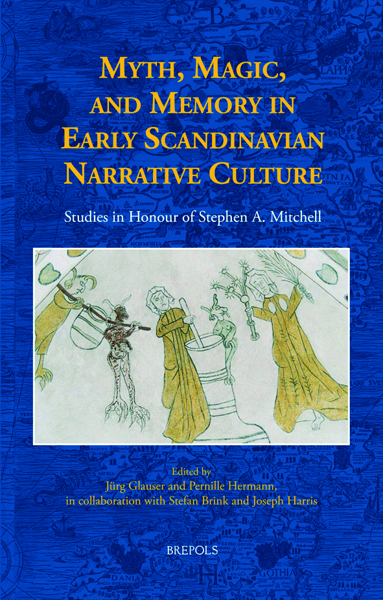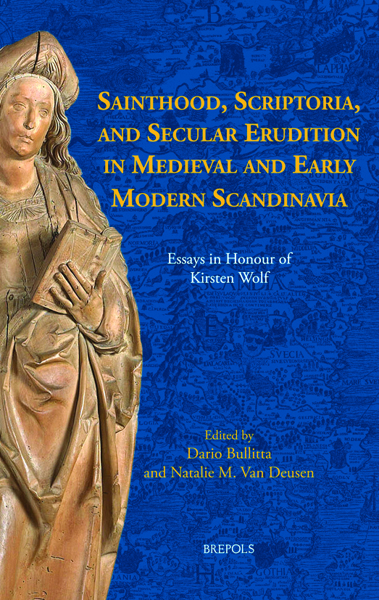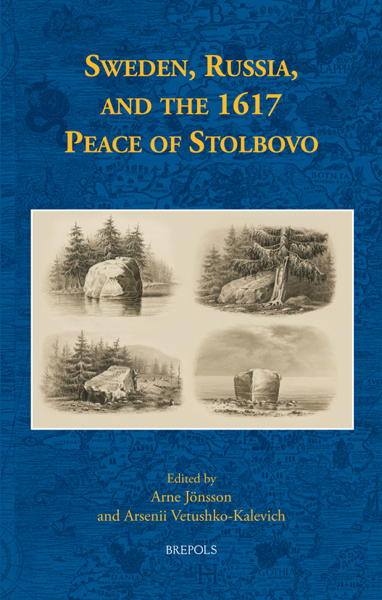
Moving Words in the Nordic Middle Ages
Tracing Literacies, Texts, and Verbal Communities
Amy Mulligan, Else Mundal (eds)
- Pages: viii + 356 p.
- Size:156 x 234 mm
- Illustrations:16 b/w, 2 tables b/w.
- Language(s):English, Old Norse, Latin
- Publication Year:2019
- € 100,00 EXCL. VAT RETAIL PRICE
- ISBN: 978-2-503-57810-1
- Hardback
- Available
- € 100,00 EXCL. VAT RETAIL PRICE
- ISBN: 978-2-503-57811-8
- E-book
- Available
Literacies on the edge: verbal cultures and communities of the medieval North.
“Moving Words in the Nordic Middle Ages offers its readership valuable case studies of the multifaceted complex medial and linguistic constellations in a young literate culture.” (Lena Rohrbach, in Speculum, 97/3, 2022, p. 871)
Amy Mulligan (DPhil, Oxford, 2004) is Assistant Professor and Fellow of the Medieval Institute at University of Notre Dame. She has held numerous major research fellowships, including and has just been awarded a major NEH grant. Her research focuses on medieval North Atlantic literary traditions and her work appears in Speculum, Journal of English and Germanic Philology, and Studies in Philology (forthcoming).
Else Mundal is Emeritus Professor of Old Norse Philology at University of Bergen. Throughout her career Else has written and edited (in English and the Scandinavian languages) over 200 articles and books on Old Norse sagas, Eddic and skaldic poetry, Old Norse mythology and religion, legends and cults of saint, on subjects within women’s history, on aspects of the cultural history of Medieval Scandinavia, on Old Norse literature as a historical source and on the relation between Old Norse oral and written culture.
The culmination of over a decade’s research on verbal culture in the pre- and post-Conversion medieval North at Bergen’s Centre for Medieval Studies, this volume traces the movement of words and texts temporally, geographically, and intellectually across different media and genres. The contributions gathered here begin with a reassessment of how the unique verbal cultures of Scandinavia and Iceland can be understood in a broader European context, and then move on to explore foundational Nordic Latin histories and vernacular sagas. Key case studies are put forward to highlight the importance of institutional and individual writing communities, epistolary and list-making cultures, and the production of manuscripts as well as runic inscriptions. Finally, the oral-written continuum is examined, with a focus on important works such as Íslendingabók and Landnámabók, Old-Norse Icelandic translated romances, and the development of prosimetra. Together, these essays form a state-of-the-art volume that offers new and vital insights into the role of literacy in the Norse-speaking world.
List of Illustrations
Introduction — AMY C. MULLIGAN
Literacy Studies: Past, Present, and Future — LEIDULF MELVE
Medieval Nordic Backgrounds: Written Culture in an Oral Society — ELSE MUNDAL
Creating Absence: The Representation of Writing in Early Histories of the North — AIDAN CONTI
Tracing Scribal Centres in Medieval Norway — ÅSLAUG OMMUNDSEN
Letters from Kings: Epistolary Communication in the Kings’ Sagas (until c. 1150) — JONAS WELLENDORF
Letters, Networks, and Public Opinion in Medieval Norway (1024–1263) — LEIDULF MELVE
Gyrðir á lykil (Gyrðir owns the key): Materialized Moments of Communication in Runic Items from Medieval Bergen — KRISTEL ZILMER
Moving Lists: Enumeration between Use and Aesthetics, Storing and Creating — LUCIE DOLEŽALOVÁ
Talking Place and Mapping Icelandic Identity in Íslendingabók and Landnámabók — AMY C. MULLIGAN
Traversing the Space of the Oral-Written Continuum: Medially Connotative Back-Referring Formulae in Landnámabók — SLAVICA RANKOVIĆ
Ǫrvar-Oddr’s Ævikviða and the Genesis of Ǫrvar-Odds saga: A Poem on the Move — HELEN F. LESLIE-JACOBSEN
‘Blood flying and brains falling like rain’: Chivalric Conflict Gone Norse — INGVIL BRÜGGER BUDAL
From Oral to Written in Old Norse Culture: Questions of Genre, Contact and Continuity — ELSE MUNDAL
Index
